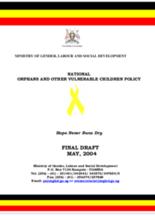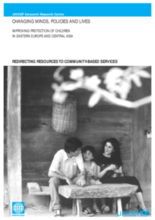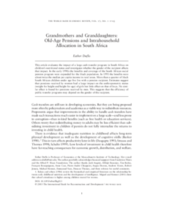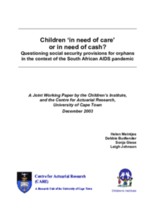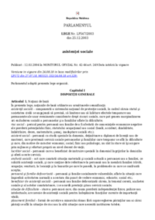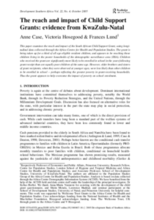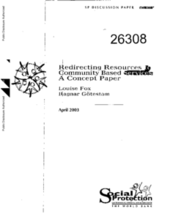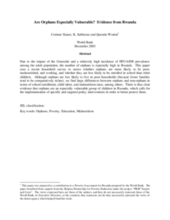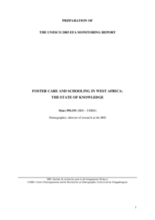Displaying 441 - 450 of 461
This document is the official policy governing National Orphans and OVC of the Ministry of Gender, Labour and Social Development (MGLSD) of the Republic of Uganda. The policy interprets a vision of a society where all orphans and other vulnerable children live to their full potential, where their rights and aspirations are fulfilled.
Provides an overview of social service provision in Eastern Europe and Central Asia, and provides information on ways to move resources away from institutional care, and into community-based social services. Contains specific examples from Latvia, Iceland, Sweden, Romania and other transitioning countries.
This research paper discussed the impact of the South African old-age pension program, or cash transfer, on the health of children living with an eligible recipient. It finds that both gender of the recipient and gender of the child living with the recipient are factors in health outcomes.
Research study of the current social security provisions for orphans in South Africa, with a comparison of four alternative cash grant scenarios. Recommends a universal income support system for all children in need.
This research paper evaluates the impact of the Child Support Grant in South Africa. It finds that while there exists a strong commitment to implementation, the presence of a child’s mother is an important factor in program participation.
A paper in a series of papers that discusses the problems associated with changing social protection services and provides guidelines to aid countries restructure their financing systems for social care. The paper proposes more family-based and inclusive care programs and less institutional care.
This research paper explores the condition of orphaned children in Rwanda. The paper urges the design of appropriate social protection mechanisms, including differentiated policy responses, conditional cash transfers and increased access to education.
Explores the relationship between fostering and education in West Africa. Identifies special need to focus on protecting and educating young girls.
A brief editorial which argues that only by addressing the fundamental causes of the HIV/AIDS epidemic, such as poverty and social exclusion, will a sustainable solution be achieved. Support for extended families and education for children affected by HIV/AIDS are needed to respond the crisis, as well as a larger scale effort to transfer resources, strengthen economies and secure investments throughout Africa.

